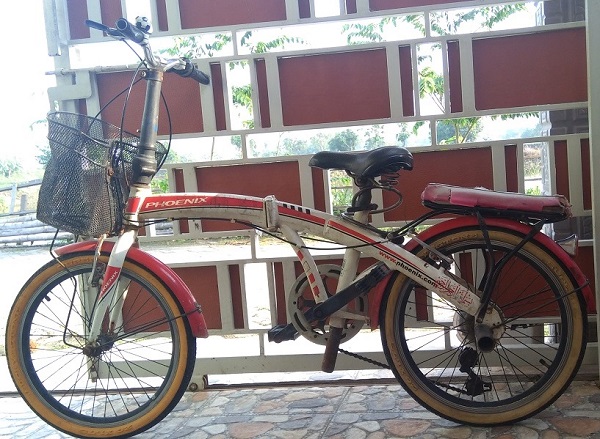Showing posts with label bahasa Jawa. Show all posts
Showing posts with label bahasa Jawa. Show all posts
I WAS BUT shocked when a fellow member of NBC (Nasi Bungkus Community) told me one Friday morning, "Masbro, sampean ketiban sampur ya. Dadi ketua panitia kurban." This is how her sentence would sound in English, "Ya bro, you're ketiban sampur. You've been appointed to be the head committee of kurban."
Our short conversation reminds me of a long forgotten idiom in Javanese. Ketiban sampur is a Javanese idiomatic expression that denotes a condition when someone is assigned to carry particular responsibility which he does not desire or expect.
Ketiban sampur is derived from a dance party known as tayub. The phrase is composed of two main words: ketiban and sampur. Ketiban indicates an unexpected windfall whereas sampur refers to the shawl worn by female dancers in the tayub. The narrow and long shawl is normally placed over their shoulders or tied to their hips when dancing.
Accompanied by traditional instrument called gamelan, the dancers will be dancing through the party and randomly pick a male guest to join them. The selection is made by placing a colorful shawl around his neck. The one receiving the shawl is called ketiban sampur as he has no idea he'll be selected.
Whenever you are assigned to something you must handle or a duty to complete but you actually never expect it, then you are ketiban sampur. While you can typically deny it, completing the task will be of great value.
"Enak ya kamu, Rud, bisa ngomong beberapa bahasa berbeda!"
Begitu ujar seorang teman, bule asal Belgia dalam bahasa Inggris. Wajahnya jelas menunjukkan antusiasme dan kekaguman pada saya dan seorang teman wanita yang akan ia persunting sebagai istri. Percakapan itu berlangsung di teras rumah mungil di pinggiran kota Semarang belasan tahun silam sebelum kami bergeser ke sebuah hotel atau apartemen di pusat kota. Saya dan teman berbicara pakai tiga bahasa sekaligus: Inggris (yang juga dipahami si bule), Indonesia, dan tentu saja bahasa Jawa bahasa ibu kami.
Bahasa terakhirlah yang membuatnya takjub. Di Belgia, menurut pengakuannya, mereka tak punya bahasa ibu seperti kita di Indonesia. Selain Jawa, ada bahasa Minang, Sunda, Papua, Madura, Bugis, dan entah berapa lagi bahasa daerah yang digunakan di Tanah Air. Sebuah sumber menyebutkan setidaknya ada 300 bahasa pribumi yang digunakan dalam percakapan di seluruh Nusantara. Bukanlah itu fakta luar biasa?
Alih-alih bahasa Belgia, warga negara itu berbicara dalam tiga bahasa yakni Belanda, Perancis, dan Jerman. Fakta ini membuatnya takjub terhadap orang Indonesia yang setidaknya menguasai dua bahasa, yakni bahasa daerah dan bahasa Indonesia. Belum lagi kalau ia menguasai bahasa asing, seperti Inggris, Jepang, Arab, Mandarin, Spanyol, dan bahasa lainnya. Tentunya kemampuan berbahasa orang Indonesia layak diacungi jempol.
Word is a primary component of a sentence. Without any words, a sentence cannot be produced so we won’t be able to speak or write it. In this sense, silah-silahing tembung serves a significant role to help us compose a good sentence. In Javanese, the part of speech goes as follows.
Tembung Aran (Noun) such as buku (book), suket (grass), omah (house), kelasa (mat), etc.
For instance: Mimi wes nggelar kelasa ing latar. / Mimi has spread out a mat in the yard.
Tembung Kriya (Verb) such as maca (read), ngombe (drink), mlaku (walk), jiwit (pinch), ambung (kiss), mangkat (depart), etc.
For instance: Isuk mau Mulyono mlaku nang sawah. / Mulyono walked to the field this morning.
Tembung Ganti (Pronoun) such as aku (I), kowe (you), deweke (he/she), etc.
For instance: Kowe opo ngerti omah kancamu kuwi? / Do you know where your friend lives?
Tembung Wilangan (Numeral) such as siji (one), sanga (nine), akeh (many/much), setengah (half), saithik (a little), etc.
For instance: Sekolah iku nduwe siswa akeh. / That school has many students.
Tembung Sipat (Adjective) such as apik (good), angel (difficult), mangkel (irritated), seneng (happy), etc.
For instance: Soal matematika iki pancen angel. / This math is really difficult to solve.
Tembung Katrangan (Adverb) such as kene (here), lor (north), nisor (below), pinggir (edge), kiwa (left-hand), etc.
For instance: Candra arep turu kene. / Candra will be sleeping here.
Tembung Pangguwuh (Exclamation) such as wah (wow), aduh (oh my), tulung (please), etc.
For instance: Aduh, bukuku ketinggalan nang omah! / Oh my, I’ve left my book at home.
Tembung Sandhangan (Attribute) such as Sang (The...), Raden (social status), Kyai, etc.
For instance: Pak Waluyo Sang Pahlawan mpun rawuh. / Mr. Waluyo the hero has arrived.
Tembung Panyambung (Conjunction) such as sarta (as well as), lan (and), mulane (therefore), etc.
For instance: Bagas lan Dimas sinau basa Jawa ing jero kelas. / Bagas and Dimas are studying Javanese in the classroom.
Tembung Pangarep (Preposition) such as sing (that), saka (from), menyang (to), ing (on/in), etc.
For instances:
- Wingi Kastolan tuku sepeda saka kancane. / Kastolan bought a bike from his friend yesterday.
- Siti mulih menyang Jakarta menesuk. / Siti is going to Jakarta tomorrow.
Understanding types of word in Javanese will make you more capable of composing a good sentence as well as make you more confident in arranging various words into a more meaningful sentence. I suppose you can make one now right?


















